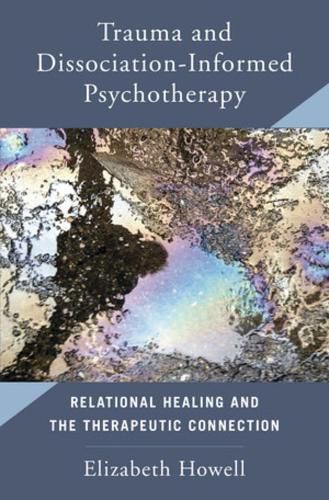Readings Newsletter
Become a Readings Member to make your shopping experience even easier.
Sign in or sign up for free!
You’re not far away from qualifying for FREE standard shipping within Australia
You’ve qualified for FREE standard shipping within Australia
The cart is loading…






A fresh look at the importance of dissociation in understanding trauma.
A new model of therapeutic action, one that heals trauma and dissociation, is overtaking the mental- health field. It is not just trauma, but the dissociation of the self, that causes emotional pain and difficulties in functioning. This book discusses how people are universally subject to trauma, what trauma is, and how to understand and work with normative as well as extreme dissociation.
In this new model, the client and the practitioner are both traumatized and flawed human beings who affect each other in the mutual process that the promotes the healing of the client-psychotherapy. Elizabeth Howell explains the dissociative, relational, and attachment reasons that people blame and punish themselves. She covers the difference between repression and dissociation, and how Freud’s exclusive focus on repression and the one-person fantasy Oedipal model impeded recognition of the serious consequences of external trauma, including child abuse. The book synthesizes trauma/dissociation perspectives and addresses new structural models.
$9.00 standard shipping within Australia
FREE standard shipping within Australia for orders over $100.00
Express & International shipping calculated at checkout
A fresh look at the importance of dissociation in understanding trauma.
A new model of therapeutic action, one that heals trauma and dissociation, is overtaking the mental- health field. It is not just trauma, but the dissociation of the self, that causes emotional pain and difficulties in functioning. This book discusses how people are universally subject to trauma, what trauma is, and how to understand and work with normative as well as extreme dissociation.
In this new model, the client and the practitioner are both traumatized and flawed human beings who affect each other in the mutual process that the promotes the healing of the client-psychotherapy. Elizabeth Howell explains the dissociative, relational, and attachment reasons that people blame and punish themselves. She covers the difference between repression and dissociation, and how Freud’s exclusive focus on repression and the one-person fantasy Oedipal model impeded recognition of the serious consequences of external trauma, including child abuse. The book synthesizes trauma/dissociation perspectives and addresses new structural models.